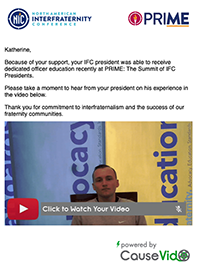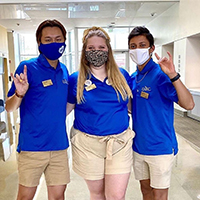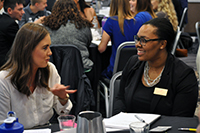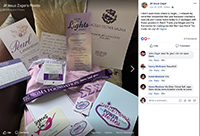We are committed to exploring new data sets that can inform the actions of fraternal industry leadership. You may not be aware of the progress FFE has made in this area in the past 15 months — the organization has funded more than $250,000 in research initiatives.
Our biggest purpose in pushing for innovative research is to help member organizations reach their goals. Relatively few published studies have been completed about the fraternal experience and so, in partnership with key industry stakeholders, we aim to serve as the funding mechanism that helps fill in the gaps so we can all better advocate for and educate on the value of fraternity and build a stronger case for support.
We have recently publicized the results of two massive research undertakings. You’ve probably seen or read at least some information on the Cygnus Applied Research surveys and the work of Dr. Gary R. Pike on the Greek experience.
Here is some food for thought from those two projects, practical applications for fundraising professionals looking to incorporate the latest data in their work. These are just a few key points selected to highlight how this type of industry research can be incorporated in a fundraiser’s toolkit.
 | WHAT WE ASKED: In what ways do fraternity and sorority members succeed on campus compared to non-affiliated students? WHAT WE FOUND: Our members show greater overall involvement and engagement on campus, in all student organizations and in the classroom. They reported stronger learning gains and satisfaction with the college experience. Source: The Greek Experience Revisited, Dr. Gary R. Pike | HOW YOU CAN APPLY IT: You are probably already using individual examples and stories, but how can you add more or make what you have more robust? Can you repackage existing content in a meaningful way? |
 | WHAT WE ASKED: Do the benefits of fraternity/sorority membership apply immediately once a student joins? WHAT WE FOUND: The largest positive effects of membership were found for first-year students, helping them adjust to campus life and finding personal and academic stability. Source: The Greek Experience Revisited, Dr. Gary R. Pike | HOW YOU CAN APPLY IT: This is a powerful tool for recruitment and undergraduate philanthropy and emerging leaders programs.
|
 | WHAT WE ASKED: How do alumni view fraternity/sorority experiences compared to other opportunities they see being offered at a university today? WHAT WE FOUND: Members rank their overall experience highly and particularly note the quality of connection to brother or sisters. Collectively, fraternities and sororities receive strong praise for the personal experience they deliver to collegiate members. Members are enthusiastic, but mentoring programs need more development to respond to the needs of collegiate members. Source: Alumni Perceptions and Preferences (October 13), 2020 Alumni & Donor Engagement Survey | HOW YOU CAN APPLY IT: The quality of the connections between one’s own chapter brothers or sisters is incredibly powerful. How can you tell a story illustrative of individual experiences and personal connections but within a framework that supports the fundraising for programs and initiatives?
|
 | WHAT WE ASKED: What information do alumni most want to hear from the national organization(s)? WHAT WE FOUND: A person’s greatest affinity and emotional connection lies with their chapter. The deeper and stronger the chapter connection is, the more likely a member is to donate. Non-donors were especially eager to receive more communication from their chapter. Source: Communicating with Your Members (October 27), 2020 Alumni & Donor Engagement Survey | HOW YOU CAN APPLY IT: Your organization probably has some mechanism for sharing chapter news, but how can you amp it up? Can you collect more news and photos? What is a good way to get the information in front of more alumni?
|
 | WHAT WE ASKED: How can we better steward donors after they make their first gift? WHAT WE FOUND: Fraternal foundations typically lose three-quarters of their supporters in the first renewal year. If a donor is retained into a second or third year of giving, the situation improves dramatically, with often 75% or more of donors are retained through later renewal years. Source: Effective Donor Relations and Stewardship (November 24), 2020 Alumni & Donor Engagement Survey | HOW YOU CAN APPLY IT: This is a great data point for growing your long-term prospects. Careful consideration of stewarding first-time donors will have a positive and compounding effect on all subsequent years of giving.
|
As you can see from the ideas we’ve shared here, industry research is critical to stronger fraternal fundraising and can be a powerful driver for the direct success of your organization.
FFE needs the commitment of the greater fraternity and sorority community to engage and help to ensure the success of upcoming research projects. In the next year we are funding projects on mental health, career success, hazing, diversity/inclusion and coronavirus pandemic impact surrounding fraternities.
If you’re interested in finding more details on how you can support these and future projects, contact FFE Executive Director Ashley VanDewark at ashley.vandewark@foundationfe.org.

